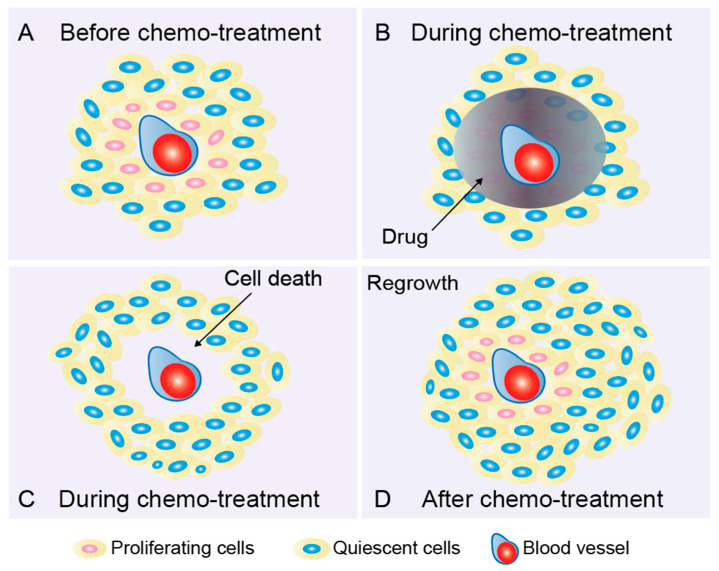Figure 1.
Quiescent cancer cells lead to drug resistance and tumor recurrence. (A) Quiescent cancer cells (QCC, “dormant”, slow-proliferating, nonproliferating, and cell-cycle-inactive) located in areas far from blood vessels are considered to be an important cause of treatment failure in solid tumors. QCCs proliferate slowly and are insensitive to cell-cycle-active anticancer drugs. During the cycle of treatment, proliferating cells (red) sufficiently exposed to the drug (B) are removed; however, QCCs (blue) that are not properly exposed to the drug and inherently treatment-insensitive are spared (C). These QCCs are able to repopulate between treatment cycles when microenvironments are favorable (D). This process is defined as tumor recurrence or relapse. It has been observed that, under favorable conditions, tumors enriched in chemoresistant QCCs recur significantly earlier than tumors bearing fewer QCCs [36].

